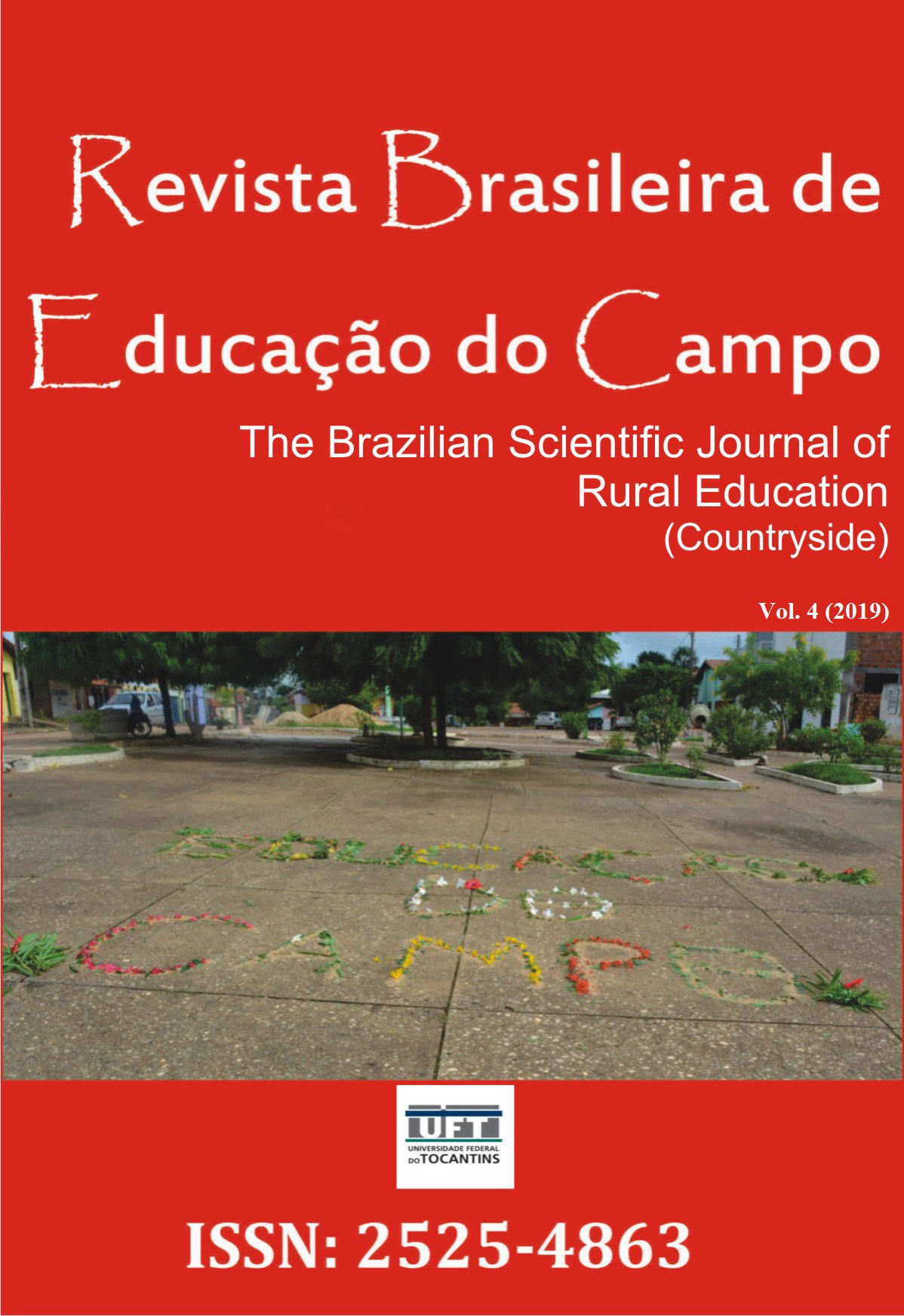Alternance Pedagogy study plan (SP): Problematizing perspective on the formative action of the Cocais/PI Agricultural Family School (EFA Cocais/PI)
DOI:
https://doi.org/10.20873/uft.rbec.e7322Abstract
ABSTRACT. The present study aims to analyze the Study Plan (SP) of the Alternation Pedagogy in its problematic dimension in the formative action of the Cocais/PI Agricultural Family School (EFA Cocais/PI). As a grounding question of the present study, the question is: to what extent is the problematizing dimension mediated by the SP effective in the EFA Cocais/PI? This question is based on the inherent condition of the SP as the pedagogical mediation of the Alternation Pedagogy, which is the problematization. Connected to other mediations, no less relevant, the SP articulates, beyond the formative times and spaces, the daily knowledge of families in the processes of teaching and learning. These elements incur the design of a formation conveyed to the problematizing dimension, considering that the reality experienced in the daily lives of families is inserted in the school environment through the SP. The data analysis showed the effectiveness of the problematic condition inherent to the SP in the formative action developed in the EFA Cocais/PI, but also revealed the existence of gaps in the realization named the SP cycle.
Keywords: Study Plan, Pedagogy of Alternation, Problematic dimension.
Downloads
References
André, M. E. D. A. (1995). Etnografia na prática escolar. Campinas, SP: Papirus.
André, M. E. D. A. (1984). Estudo de caso: seu potencial na educação. Cad. Pesq., (49), 51-54. Recuperado de: http://publicacoes.fcc.org.br/ojs/index.php/cp/article/view/1427/1425
Angrosino, M. (2009). Etnografia e observação participante. Tradução de José Fonseca. Porto Alegre: Artmed.
Bakhtin, M. (2006). Marxismo e filosofia da linguagem. 12. ed. São Paulo:HUCITEC
Brait, B. (Org.). (2005). Bakhtin: dialogismo e construção do sentido. 2. ed. rev. Campinas, SP: Ed. UNICAMP.
Colombo, A. A., & Berbel, N. A. N. (2007). A Metodologia da Problematização com o Arco de Maguerez e sua relação com os saberes de professores. Semina: Ciências Sociais e Humanas, 28(2), 121-146. Recuperado de: http://www.sgc.goias.gov.br/upload/links/arq_390_ametodologiadaproblematizacaocomoarcodemaguerez.pdf
Fairclough, N. (2008). Discurso e mudança social. Brasília: Editora Universidade de Brasília.
Freire, P. (1987). Pedagogia do oprimido. 17. ed. Rio de Janeiro: Paz e Terra.
Gimonet, C. J. (2007). Praticar e compreender a pedagogia da alternância dos CEFFAs. Tradução de Thierry Burghgrave. Petrópolis, RJ: Vozes; Paris: AIMFR – Associação Internacional dos Movimentos familiares de Formação Rural.
Jesus, J. G. (2011). Formação de professores na pedagogia da alternância. Vitória, ES: GM.
Mészáros, I. (2005). A educação para além do capital. Tradução de Isa Tavares. São Paulo: Boitempo.
Villardi, M. L., Cyrino, E. G., & Berbel, N. A. N. (2015). A metodologia da problematização no ensino em saúde: suas etapas e possibilidades. In A problematização em educação em saúde: percepções dos professores tutores e alunos [online] (pp. 45-52). São Paulo: Editora UNESP; São Paulo: Cultura Acadêmica. Recuperado de: http://books.scielo.org/id/dgjm7/pdf/villardi-9788579836626-05.pdf
Published
How to Cite
Issue
Section
License
Proposal for Copyright Notice Creative Commons
1. Policy Proposal to Open Access Journals
Authors who publish with this journal agree to the following terms:
A. Authors retain copyright and grant the journal right of first publication with the work simultaneously licensed under the Creative Commons Attribution License that allows sharing the work with recognition of its initial publication in this journal.
B. Authors are able to take on additional contracts separately, non-exclusive distribution of the version of the paper published in this journal (ex .: publish in institutional repository or as a book), with an acknowledgment of its initial publication in this journal.
C. Authors are permitted and encouraged to post their work online (eg .: in institutional repositories or on their website) at any point before or during the editorial process, as it can lead to productive exchanges, as well as increase the impact and the citation of published work (See the Effect of Open Access).















